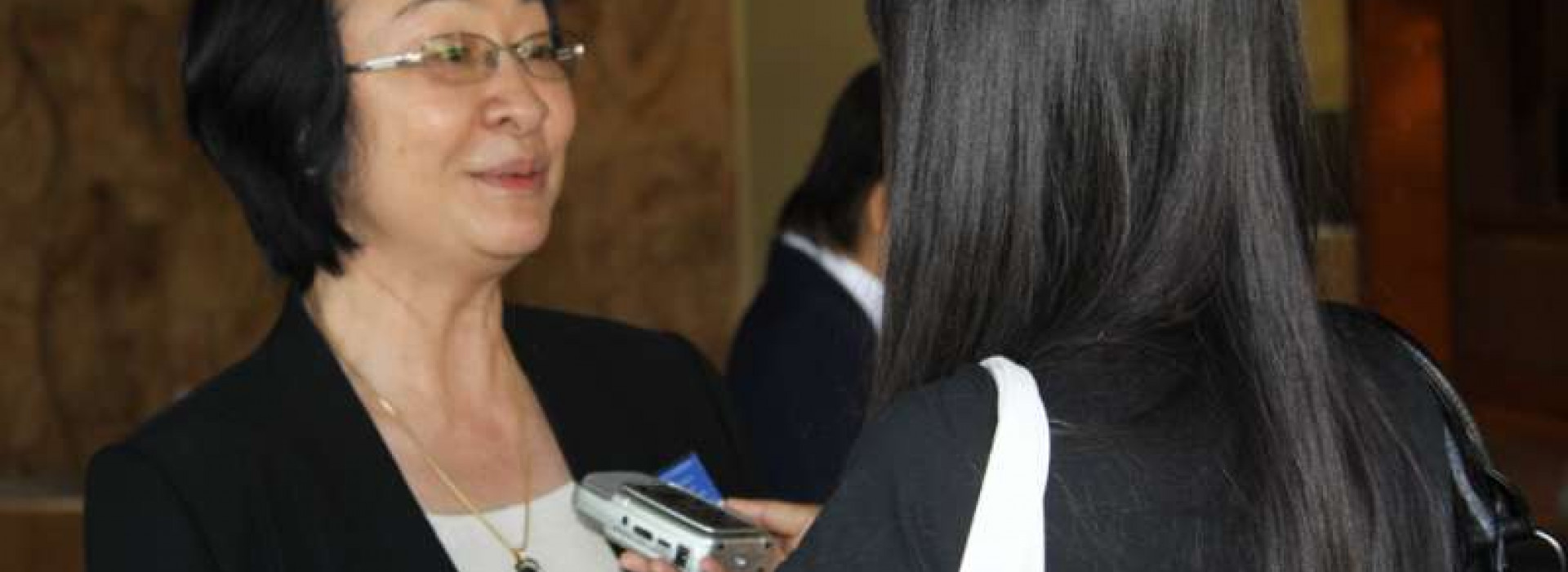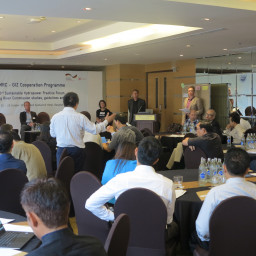A woman’s long and tough journey
Madame Khempheng Pholsena’s work space, located at the Prime Minister’s Office complex in Vientiane, is hardly reminiscent of her early days, as she recalls her time in a cave in Huaphan Province during the war time for independence.
As she fought for the nation’s independence along with others then, she did not yet realise that this encounter would motivate her to pursue a career as a professional breaking glass ceilings and redefining boundaries as a Lao woman.
Today, in her sixties, Mme Khempheng is Lao PDR’s Minister to the Prime Minister’s Office and the Head of Water Resources and Environment Administration (WREA).
“I don’t wish for the new generation to experience what I did during the war, but at the same time our history should not be forgotten. It taught me to fight for a cause, which shaped my entire life. The new generation shouldn’t take for granted the opportunities they have today,” she said.
Despite inevitable hardship including exposure to bombing and even hunger, a strong belief in the cause for independence fed Mme Khempheng’s inspiration during her time in Huaphan.
“While adapting to wartime conditions I have learned to be disciplined, stand strong and fight for my country’s freedom under the banner of the Party,” she continued.
Mme Khempheng’s wartime experiences paved the foundation for her hard-earned, extraordinary achievements in development cooperation, which focused on the mobilisation of financial resources and technical assistance to address the country’s highest socio-economic priorities including poverty eradication and sustainable development.
Today, while in charge of WREA she continues to mobilize resources for integrated water resources and environmental management, to ensure the right balance between strong economic growth, the protection of the environment and the sustainable use of national natural resources is met.
Self-improvement for professional development
To achieve what she has today, Mme Pholsena said she has had to constantly work on her self-improvement and acquire the knowledge needed for her work. Her approach can be described as, ‘learning-by-doing’ or, ‘learning from best practices.’
“As a woman, you have to work three times more to be recognised: you work fulltime at the office and after office hours, women usually still continue to take care of their families. In addition, you also need to be engaged in social activities following Lao traditions,” she said.
“Nevertheless, there are more and more women now who are very successful in their careers and in business,” she continued.
In fact, Lao PDR is a country which has about 20% of women as members of the National Assembly. The Assembly is now led by Mme Pany Yathotou who was also a very successful governor of the Central Bank of Lao PDR.
Despite the fact that many achievements on the gender front have been reached, there are still challenges in regards to gender equality in the work place, maternal mortality rates, malnutrition and education-for-all in rural areas.
Balancing the gender scale
“In Lao PDR, men and women are entitled to equal rights by the Constitution,” said Mme Khempheng.
Equality does not come, however, by just promoting an individual because of their gender. It comes rather by taking into account one’s merit while giving equal chances to both men and women. Therefore, there is a strong need for women to be educated and feel self-confident.
“When I joined WREA [Water Resources and Environment Administration] in 2007, I was pleased to see how many female leaders we have and how responsible and enthusiastic they all are,” she recalled.
Today, over 40% of the permanent staff in the WREA at the central level are women and five departments out of seven are led by females.
“The numbers of professional women today in Lao PDR have drastically increased from when I began my career. Today we have a woman as the president of the National Assembly; women who are ministers, vice ministers, vice governors, ambassadors and women activists from the Lao Women’s Union, as well as many leading business women and entrepreneurs who all contribute to national development” Mme Pholsena said.
Striking the balance
For International Women’s Day on March 8th, Mme Khempheng’s message is clear:
“At the end of the day, it’s about striking a balance between career and family. It’s not just about achieving your professional goals as a woman. It’s about understanding your personal goals, expectations and how you can balance these factors to achieve harmony in life.”
“On this occasion of International Women’s Day, may I take this opportunity to congratulate women and wish them happiness, good health and great success. May I also send my best wishes to women in our region.”




